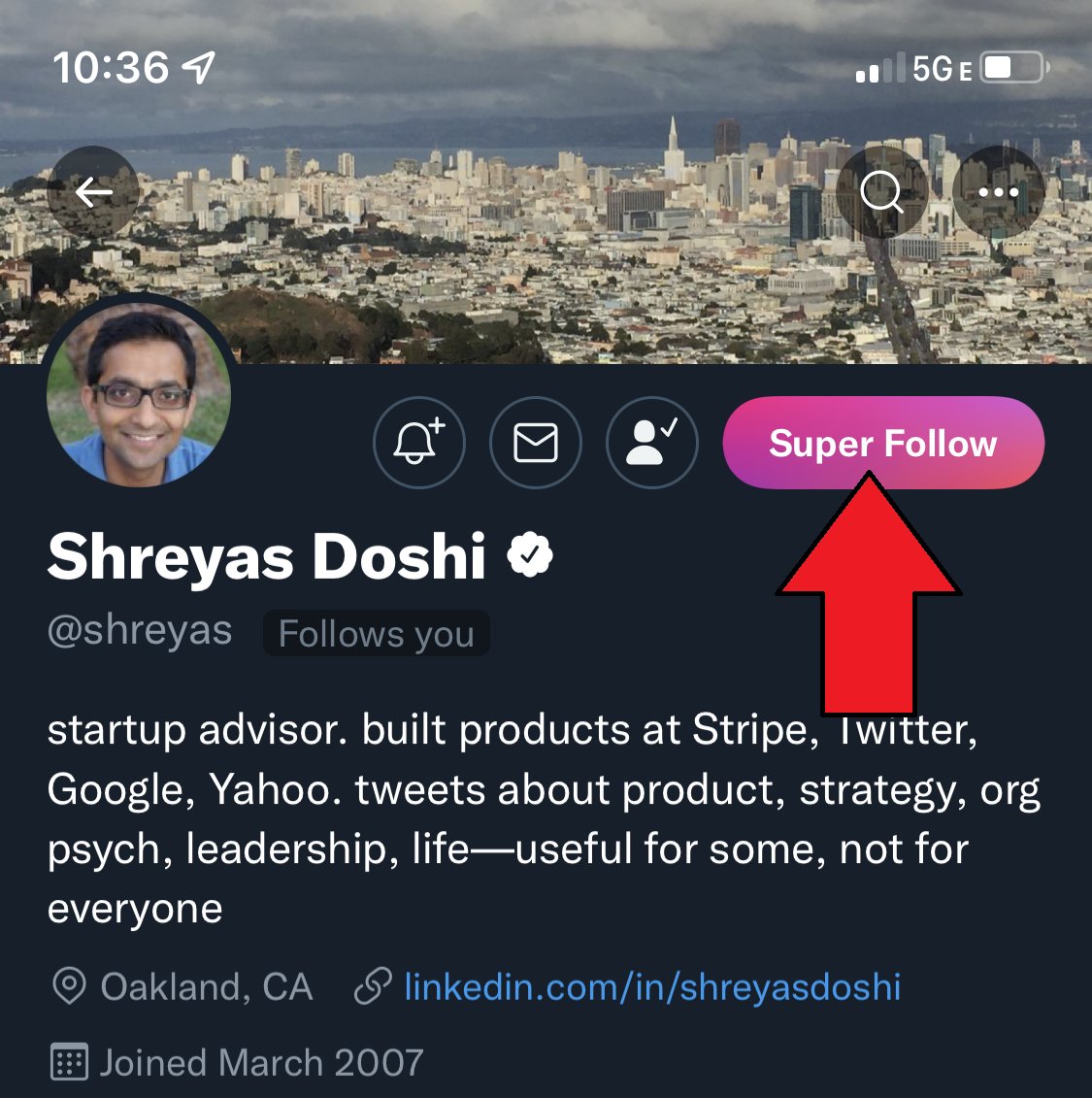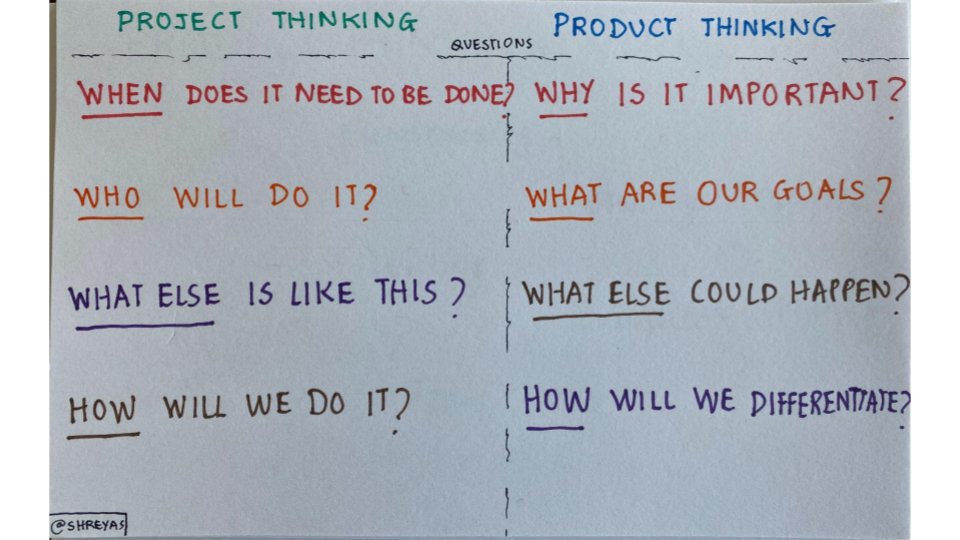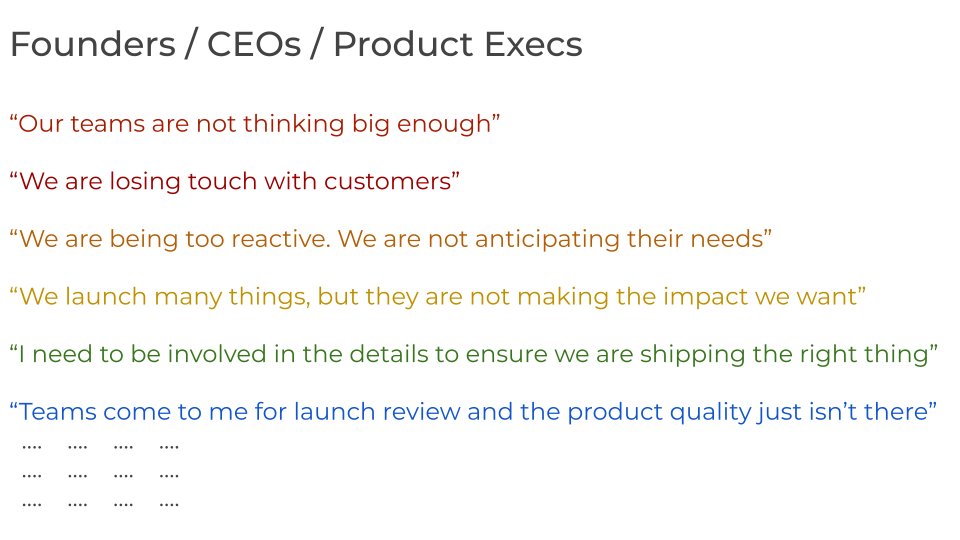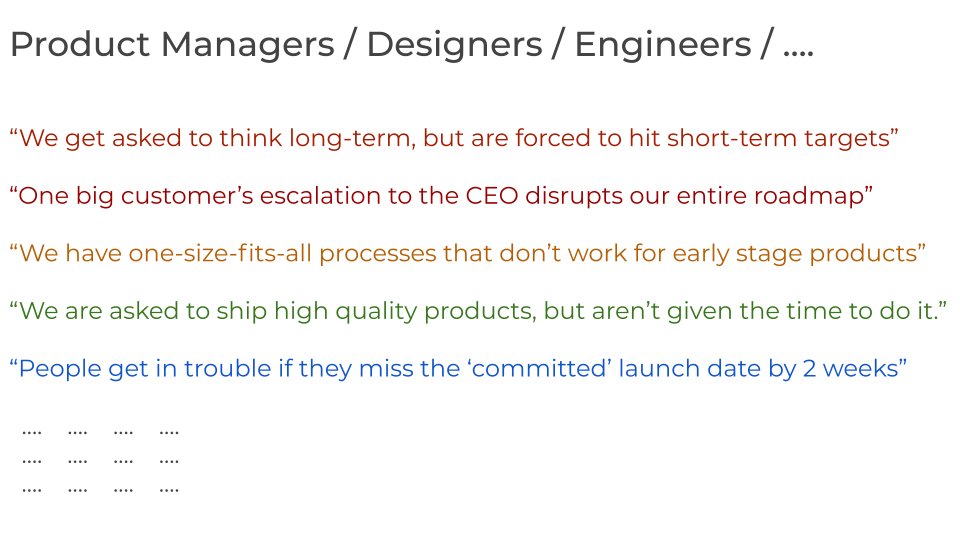
I’m starting to call these the “apple pie positions” => the personal risk of pushing back is so high that almost everyone nods “yes”, even though it is rarely the right answer for the team / company / user. Great example in the quoted Tweet. Will add more in the thread below:
https://twitter.com/can/status/1231244204359053312
Apple pie position #1:
We need more scalable processes.
We need more scalable processes.
Apple pie position #2:
We need to define the success metrics for <whatever is being discussed>.
We need to define the success metrics for <whatever is being discussed>.
Apple pie position #3:
We need incentives and priorities to be aligned across all of the teams working on <whatever is being discussed>.
We need incentives and priorities to be aligned across all of the teams working on <whatever is being discussed>.
Apple pie position #4:
We need a weekly [check-in || update || executive review] to keep all the stakeholders in the loop.
We need a weekly [check-in || update || executive review] to keep all the stakeholders in the loop.
Apple pie position #5:
We need to stop thinking tactically and think strategically.
Sometimes seen in the wild as:
We shouldn't miss the forest for the trees.
AND
We need to zoom out a bit.
We need to stop thinking tactically and think strategically.
Sometimes seen in the wild as:
We shouldn't miss the forest for the trees.
AND
We need to zoom out a bit.
Apple pie position #6:
We need more executive buy in before we can execute on <whatever is being discussed>.
We need more executive buy in before we can execute on <whatever is being discussed>.
Apple pie position #7:
We don't expect the business to grow a whole lot this year because we are laying the foundation for massive growth in future years.
(fast forward: the promised massive growth never actually materializes)
We don't expect the business to grow a whole lot this year because we are laying the foundation for massive growth in future years.
(fast forward: the promised massive growth never actually materializes)
Apple pie position #8:
We have too many meetings.
We have too many meetings.
Apple pie position #9:
We need to sync more often.
We need to sync more often.
Apple pie position #10:
We need more apple pie!
(this one I agree with entirely)
We need more apple pie!
(this one I agree with entirely)
Apple pie position #11:
We need better metrics before making a decision here.
We need better metrics before making a decision here.
Apple pie position #12:
We need a better go-to-market strategy to improve product adoption.
We need a better go-to-market strategy to improve product adoption.
Apple pie position #14:
We need an offsite!
We need an offsite!
Apple pie position #15:
We need to do a retrospective to determine the systemic changes that are necessary.
Also seen in the wild as:
We need to post-mortem this.
We need to do a retrospective to determine the systemic changes that are necessary.
Also seen in the wild as:
We need to post-mortem this.
Apple position #16:
We need to clarify our expectations from people in this role so we can set them up for success.
Also seen in the wild as:
We need a better career ladder for this role.
AND
The reason this role isn't impactful yet is that role expectations are unclear.
We need to clarify our expectations from people in this role so we can set them up for success.
Also seen in the wild as:
We need a better career ladder for this role.
AND
The reason this role isn't impactful yet is that role expectations are unclear.
Apple pie position #17:
We need [person being discussed] to be more strategic and less tactical.
We need [person being discussed] to be more strategic and less tactical.
Apple pie position #18:
We need more internal documentation!
We need more internal documentation!
Apple pie position #19:
We shouldn't forget [quote one of the company's core values].
(often used as a tool to justify one's position, especially when faced with rational counter-arguments)
We shouldn't forget [quote one of the company's core values].
(often used as a tool to justify one's position, especially when faced with rational counter-arguments)
Apple pie position #20:
We need to replace our team meeting with written updates.
Fast forward a few weeks/months:
People are missing live interactions with team members, they don't know what's going on across the team, nobody's reading the written updates. We need a meeting.
We need to replace our team meeting with written updates.
Fast forward a few weeks/months:
People are missing live interactions with team members, they don't know what's going on across the team, nobody's reading the written updates. We need a meeting.
Apple pie position #21:
Our current org structure doesn't set us up for optimal execution of our strategic goals. That's why we are announcing a re-org.
Our current org structure doesn't set us up for optimal execution of our strategic goals. That's why we are announcing a re-org.
Apple pie position #22:
Remember, we need to hire for strengths not a lack of weakness.
(usually employed to justify hiring a highly pedigreed person for an important role)
Remember, we need to hire for strengths not a lack of weakness.
(usually employed to justify hiring a highly pedigreed person for an important role)
Apple pie position #23:
We must not slow down our shipping velocity.
(usually applied to push back against a fairly rational measure that will cause a minor delay in shipping the product but will prevent bigger problems for the user / company further down the road)
We must not slow down our shipping velocity.
(usually applied to push back against a fairly rational measure that will cause a minor delay in shipping the product but will prevent bigger problems for the user / company further down the road)
Apple pie position #24:
[A] We have done tremendous user research over the past 3 months and have identified these [top N] product gaps. We are confident that product adoption will soar once we address these gaps within the next [M] months.
Fast forward M months: goto [A]
[A] We have done tremendous user research over the past 3 months and have identified these [top N] product gaps. We are confident that product adoption will soar once we address these gaps within the next [M] months.
Fast forward M months: goto [A]
Apple pie position #25:
Remember, we are a mission-driven company.
(particularly effective in justifying below-market compensation for current and prospective employees)
Remember, we are a mission-driven company.
(particularly effective in justifying below-market compensation for current and prospective employees)
Which ones did I miss? Feel free to add your most favorite (or least favorite) Apple Pie Positions in replies or retweets.
• • •
Missing some Tweet in this thread? You can try to
force a refresh










